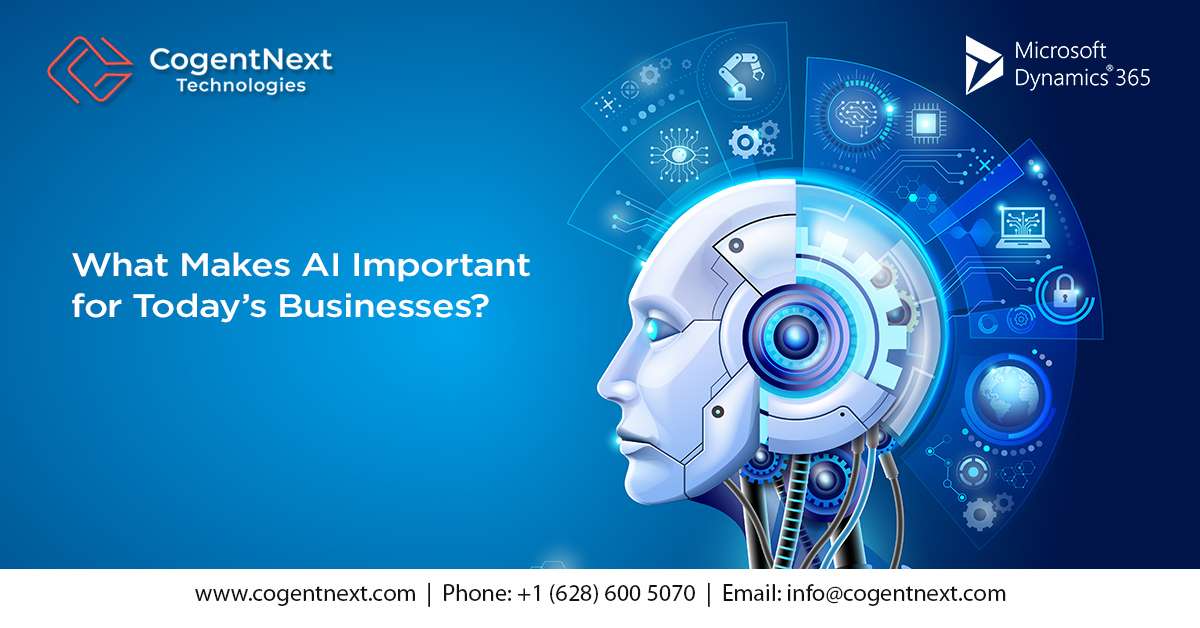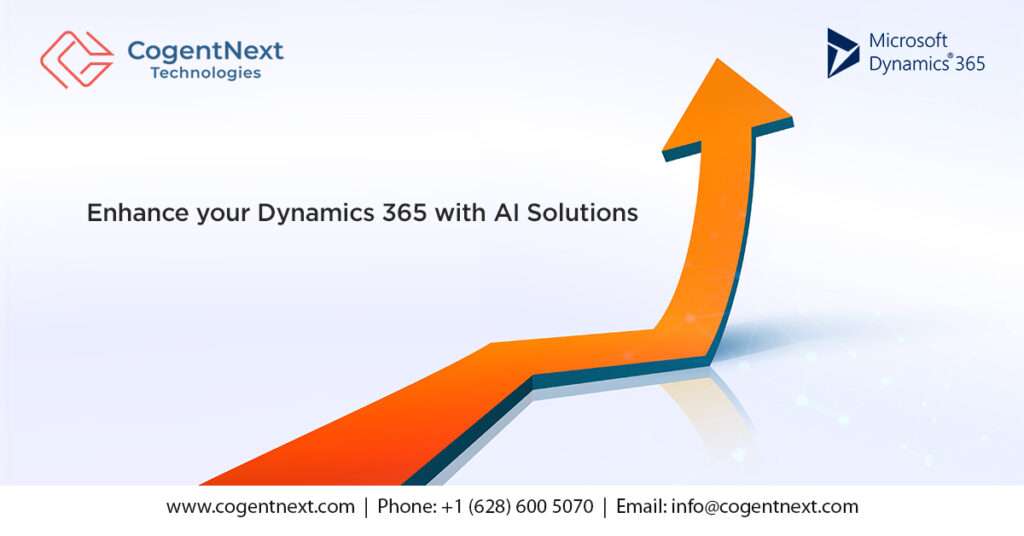
What is AI, and How Can it Enhance Your Business?
AI, or Artificial Intelligence, has become an industry buzzword used to describe a variety of technologies and also used as a way to drive sales of the latest products. However, there is a great deal of depth in the AI field, and large enterprises are investing heavily in it to reap major benefits over the long term.
AI is important for small- to medium-sized companies as well. Being well-informed will help you understand how these technologies can drive sales, reveal insights about your customers, vendors, and expenses, streamline manual workflows, optimize supply chains, reveal new product opportunities, and much more, guiding you in making the best decisions possible for the future of your business.
What is Artificial Intelligence?
While the term may initially conjure up images of sentient computers or robots (like in movies such as Star Trek and 2001: A Space Odyssey), AI, as it is used today, has to do with software that can acquire knowledge and apply it to achieve a desired result; the focus is not on accomplishing by rote, but rather intelligently adapting to the unique circumstances of each problem. Of course, as technology advances, what was once considered “AI” because of its complexity is now viewed as routine data processing. The definition is certainly a moving target.
There are three important criteria that almost any AI technology must fulfill:
- Learning: Data is acquired, and algorithms – or rules for how to process that data – are applied to turn raw data into actionable information.
- Reasoning: This is where a system is designed to determine the best algorithm to use based on the data it is analyzing, or in the context of its current operations.
- Self-correction: This reflects a system’s ability to adjust itself until it can produce the desired result (or the result falls within defined parameters.)
What Makes AI Important for Today’s Businesses?
According to IDC, a research firm, the year 2020 saw 64.2 zettabytes (or 64.2 billion terabytes) of data generated. What is more, that value is forecast to grow as much as 23% year over year. The potential for data-driven decision-making is limitless, but without AI to capitalize on big data, that potential will remain untapped.
Deep learning, part of the Artificial Intelligence sphere, assists in the processing of large data stores, distinguishing subtle patterns and similarities within the data that can give companies a competitive edge. What is more, since AI is not influenced by human bias, it has an innate ability to reveal the truth of a matter, rather than what we want to see.
The pace and scope of the business have grown to such proportions that we humans are struggling to keep up. Customers demand fast turnaround times and personalized experiences; employees are becoming buried under an ever-expanding list of responsibilities. We have reached a point where we cannot meet demands and continue to grow and innovate without artificial intelligence.
There are vast efficiency gains to be had through the application of Artificial Intelligence in the enterprise. It goes far beyond automation. Since it can analyze volumes of data, AI can even discover more efficient processes and assist in making on-the-fly adjustments to workflows according to changing circumstances.
There are already many remarkable applications of AI technology. For example, AI helps doctors to make more accurate diagnoses. It helps customer service agents to prioritize and handle customer inquiries and complaints. It is integral in cybersecurity, responding to threats and prioritizing those that need human attention. Even in the financial sector, banks benefit from AI to speed up and secure loan processing and ensure compliance.
What are the Benefits?

AI can be implemented in an incremental approach, integrating with existing business processes, and further enhancements made commensurate with the gains realized. What can you expect to see as these technologies are deployed in your company?
- Enhanced Customer Service: The AI tools in modern CRM solutions take the tedious work off the shoulders of customer service representatives and account managers, freeing them up for more valuable tasks. It also makes it possible for more personalized experiences, delighting clients and increasing sales
- Real-time Monitoring: Coupled with intelligent imaging devices and machine learning models, AI allows monitoring of key activities to identify anomalies and make adjustments to prevent costly errors.
- Quicker to Market: With assistance from AI and analyzed data, product development times can be greatly shortened, getting to market faster and delivering greater ROI on your R&D dollar.
- Higher Quality: Reducing errors is critical to any business process. With tight quality constraints and strict adherence to compliance standards, AI shines at delivering exacting results. Financial reconciliation is a good example where removing error-prone humans from the process substantially reduces costs, time, and errors.
- Human Resource Gains: Enterprise AI software has helped some companies to streamline the hiring process, eliminate bias in the language of internal communications, and assist in acquiring top-tier talent.
- Innovation and Expansion: With the advantages that AI can offer when properly implemented, it can open up new opportunities, or even offer you the opportunity to shift your business model for greater market reach and profits.
What are the Drawbacks?
As with any new technology, AI is not without its drawbacks. Perhaps the most obvious one is mistrust. Many have expressed concern about our increasing reliance on AI, or have fears that it will take over or otherwise enable unfair behavior. Still, others are worried about job elimination as a side effect of increased efficiency. And some are simply unconvinced of its value.
This mistrust must be mitigated to benefit from AI implementation. In many scenarios, AI is present to augment, rather than replace, human workers. But if the worker doesn’t trust the AI system and follow its guidance, nothing is gained.
Here are three other concerns when implementing AI:
- Errors: On the surface, eliminating the human equation also eliminates a great many errors. However, because of poor quality data or faulty algorithms, AI too can make mistakes. And imagine those mistakes compounded over millions of transactions!
- Ethical Considerations and Unintended Consequences: AI systems are programmed by humans, thus they can be programmed with bias. For example, there are AI tools used by judicial systems in some countries that have been shown to have a clear racial bias. On the other hand, AI might lead a grocery chain, seeing that there is little competition in a particular low-income neighborhood, to raise their prices, even though in reality that may not be the best business move.
- Operator dependence: Often overlooked, many workers are losing the ability to complete key tasks without the help of technology. For example, after two plane crashes involving Boeing 737 Max jets, experts warned that pilots could become too dependent on AI-controlled systems and thereby lack the necessary skills to manage emergencies when those systems fail.
How to Effectively Leverage Artificial Intelligence in Your Enterprise
There is no one formula for achieving a successful implementation. One reason is that AI technology is a constantly moving target; thus best practices continue to evolve. However, the following are general guidelines that provide a balanced approach:
- Learn to use, explore, interpret, and visualize data.
- Define your business goals for AI implementation.
- Identify areas that will derive the greatest initial benefit.
- Decide what you can realistically accomplish.
- Test a single AI project and evaluate the results.
- Using those results, begin larger, incremental implementations.
- Continuously improve AI models and processes.
Next Steps
Do you have concerns about how to approach AI technologies in your enterprise? We can help.
CogentNext has experience in software implementation across a diverse client base located across the globe, implementing Microsoft ERP and CRM solutions that include AI, as well as custom-developed solutions to meet clients’ detailed requirements.
Entering into the world of AI can be daunting, with many decisions and possible pitfalls. Let us guide you through the process. Contact us today to start on the road to success!
By Chandra Subramanian, CogentNext Technologies
